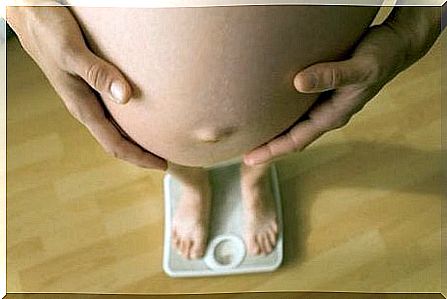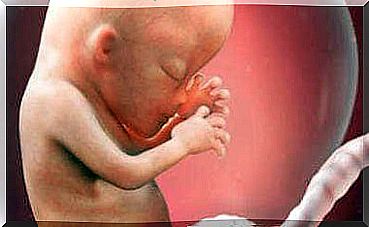Pregnancy Age: My Baby Is Too Big

In this article, we talk about what it means for babies to be too “large for gestational age” (LGA).
Many babies who come into the world weigh more than 9 pounds, which is considered too large considering the gestational age.
In addition to complicating the birth process, this characteristic can contribute to the development of various health problems. So what should you do if your baby is very large before birth?
To avoid further complications, some mothers ask themselves what they can do in advance about their baby’s heavy weight. Babies who present with this problem are considered “too large for gestational age” called LGA.
LGA refers to babies whose weight is above normal – above 9 or 10 pounds. The Spanish Pediatric Society states that this weight corresponds to the 90th percentile.
Therefore, doctors believe that babies are too large for gestational age when they are above the 90th percentile. In other words , these babies weigh more than 90 percent of other babies of the same gestational age.
However, there is a margin of error of approx. 1 pound when making these estimates.
What causes gestational age (LGA)?
Before explaining what action you can take in case of LGA, you should first know more about this condition. To begin with, there is a list of possible causes:
- Genetics : If the parents have a predisposition to obesity, then it is quite possible for the child to inherit these genes. And of course, show signs even before they are born.
- Maternal Weight : If a mother is overweight during pregnancy, this can transfer to her unborn baby.
- Diabetes in the mother : This disease can cause hormonal imbalances that can result in an excess of sugar for the baby’s organism. This produces fetal weight gain.
- Pregnancy time : When a pregnant mother reaches week 40, the baby may have grown too much.
- Previous pregnancies : If this is not the mother’s first pregnancy, vias carrying nutrients to the fetus may now be more dilated. This contributes to the growth of the fetus.

Factors such as the mother’s age, her nutritional status, socioeconomic conditions and possible genetic diseases in the baby may also play a role. In addition, possible genetic diseases such as Weaver syndrome, Sotos syndrome and others may also be the cause.
Possible consequences
It is quite possible for an LGA baby to be born without any problems. However, there is a very real risk of complications during birth as well as risks to the baby’s health in the future.
Obstetric trauma, such as dislocated shoulder or injury to the brachial plexus. In the first scenario, the baby’s shoulder may get stuck in the birth canal after his or her head has already gone through.
The solution usually involves causing fractures of the shoulder bone. Unfortunately, this drastic measure is often necessary to loosen the shoulder from the mother’s pelvis.
As for the mother, she suffers injuries during childbirth, bleeding, complications of administering anesthesia and infection in the surrounding organs.
In the future, the baby may be at risk of the following diseases:
- Diabetes
- Respiratory problems due to underdeveloped lungs.
- Polycythemia and conditions related to red blood cell excess.
At the same time, the risk of miscarriage is greater when a baby is too large for his or her gestational age. Some causes can be lack of space in the uterus or pressure on the umbilical cord.
Inability to provide the fetus with the nutrients necessary for his or her development is another possible cause of miscarriage.

My baby is overweight even though I am still not ready to give birth… What should I do?
Once your doctor has discovered LGA, then there really is not much you can do except change the method of birth. However, given the reasons for this condition, there are certain recommendations to avoid its existence.
Perhaps the most important thing is to observe your weight gain as well as your baby’s. At the same time, check your glucose levels. This can help prevent or detect cases of gestational diabetes in women who have never experienced this type of problem.
If the cause of the excess weight in the fetus is prolonged pregnancy, your doctor may suggest inducing labor pains.
As we said before, when your time has come to give birth, your doctor may suggest a cesarean section if possible. That way, both mother and baby can avoid the complications that can occur during the birth process.









